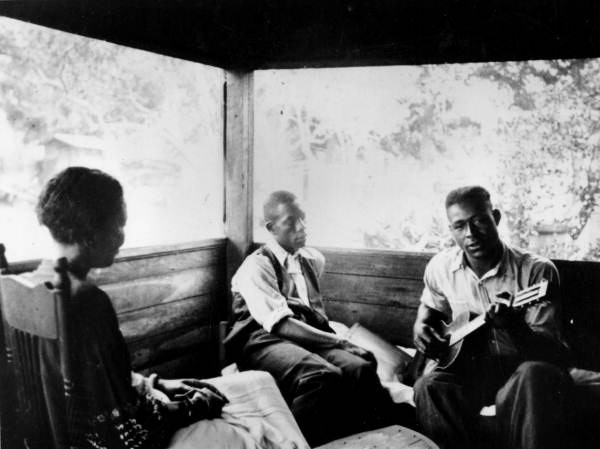Oral Histories and Zora Neale Hurston Lesson Guide
Overview and Objectives
Grade levels: 6-12th grade (can be adapted)
Subject areas: Language Arts/Social Studies/ Technology
Duration: 3 sessions
Topic: Oral Histories and Zora Neale Hurston’s Audio Recordings
Keywords: labor, race/racism, folklore, oral history, geography, rhetoric, English, language arts, vernacular
Summary:
This lesson could be used as an extension plan on a unit on Their Eyes Were Watching God, or on rhetoric, vernacular, folklore, and/or social studies methods in a Human Geography, US History, Sociology, or Geography course. Oral histories as a focus could be adapted to many questions across the social sciences/language arts and literature classroom.
In this lesson, students will:
Develop a definition of oral histories/oral culture/orality and be able to articulate the important distinction between oral and written historiesCreate their own written/oral historiesClose-read story and analyze how Hurston merges the form of the parable/folk tale to produce a story about story-telling in “Magnolia Flower.”Engage a focused analysis of the story’s content and style to consider how Hurston addresses issues of Black and Native American interactions, the memory of nature, colorism, gender roles, etc. Themes discussed could be tailored to educator goals.
Oral Histories and Zora Neale Hurston Lesson Guide
Resources used in lesson:
Zora Neale Hurston- Magnolia Flower
Zora Neale Hurston– Story in Harlem Slang
Zora Neale Hurston’s Recordings (Florida Memory Project)

